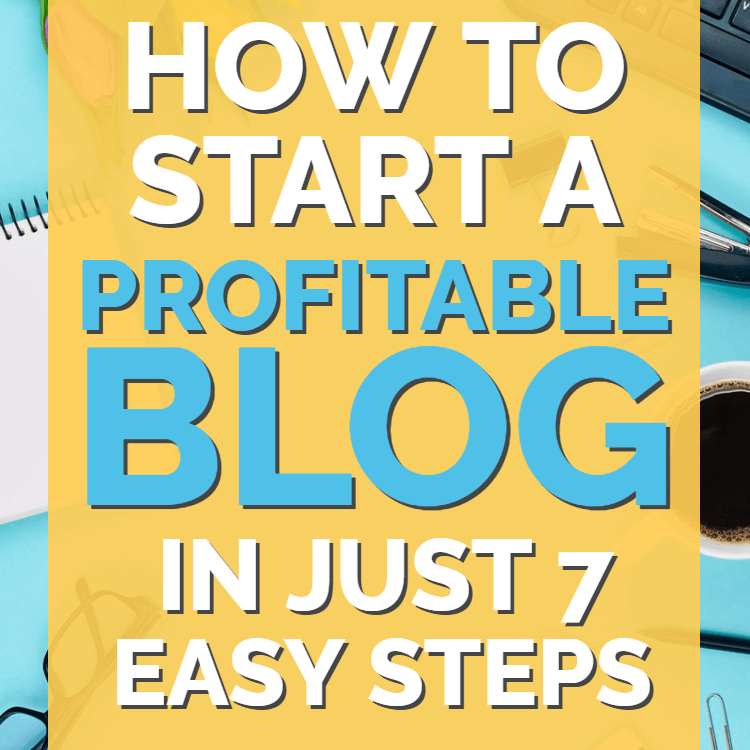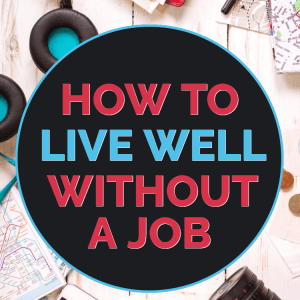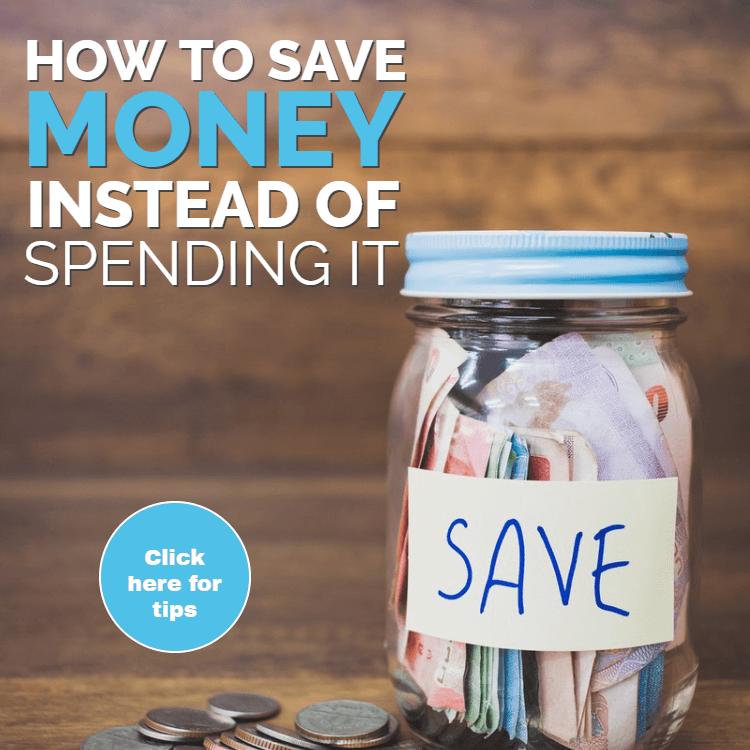Contents

When you’ve got to choose between that shiny new laptop or seeing some numbers increase in your bank account, most people would choose the gadget.
But what if you want to start saving money, but you find yourself seemingly unable to?
What psychological tricks can you employ to help you start saving money?
Over the years I’ve tried out all sorts of strategies.
If I’m honest, most were less than successful.
But just a few made it through my rigorous testing. It’s these that I largely credit my success to, when it comes to paying off debt, budgeting harder and building up your savings – without feeling like you’re missing out.
Today I’d like to tell you about them, in the hope that they help you too…
Financial Freedom
The single biggest motivator for me has been the dream of “financial freedom” – quite simply the possibility of having so much money in savings and investments that you can live off the interest alone.
Now, don’t get me wrong. I know this is a tall order.
But I also know that a number of people have successfully achieved this.
These days I quite enjoy my job. But I’d still rather not work, if I could afford to. I’d travel extensively. Go back to university to get my doctorate. Start a business. Become self sufficient.
Not having to work means freedom; freedom to get up when you want, spend your days following your passions and not having to worry about how you’ll pay the bills.
The reality is that every dollar you put into savings takes you ever closer to that goal. Every dollar in savings or investments is working hard for you, accruing interest, and shortening the time it’ll take to retire.
What if you miss that goal? What if you save for years and still can’t afford to quit?
I’d argue you’re still way ahead of the pack. That interest can still do amazing things for your life; it can mean more luxuries in later life, or working part time, or taking a lower-paying but more enjoyable job.
Even failing makes you a winner.
So think about what you’d do if you never had to work again. Burn those thoughts into your brain.
Furthermore, consider the parts of your life right now that you’d be able to change if you had residual income coming in. What would you like to change about your job, your home life and how you spend your (limited) free time?
Use this mental picture as motivation, and appreciate that every dollar – every cent – that you save, takes you ever closer to this goal.
Hours Not Prices
I work with someone who recently bought a designer bag. They proudly told me what a bargain they’d got – because it was 90% off due to some minor (imperceptible) damage. Apparently they thought it made financial sense to buy a bag they don’t need because it was $900 cheaper than it should have been.
Well, OK, you’ve got to congratulate their bargain-hunting abilities. But that bag still cost $100. Their old one did the job fine.
So was it a bargain, or not?
Here’s the thing; it’s easy to get caught up in sale prices. We humans seem to struggle to control our impulses when we really feel like we’re getting a deal (check out the behaviour on Black Friday if you don’t believe me). And so we spend rather than save.
But lets take a step back for a moment. Let’s forget about the $900 saving for a moment, and look at things from a different perspective.
That perspective is your hourly rate.
How many hours of work will it take to earn the money to buy that item?
I don’t know how much my friend earns, but lets say – for the sake of argument – that they earn $20 an hour. That bag (that they didn’t need) just cost them 5 hours of hard labour.
Was it worth it?
More and more, I’ve found that thinking in terms of hours worked rather than flat-out prices helps to control my spending and encourage me to put more into savings.
Would I rather have a new bag, or have five hours off work to spend on my hobbies or with my family?
Option 2 is the answer.
So work out your hourly rate and start comparing it to prices at the store. I hope that, like me, you’ll find it greatly changes how you view your shopping habits.
Buying Free Time
There are two different versions of me. There’s the “me” when I’m working. This guy gets stressed. He gets tired. He gets bored and – quite frankly – irritable and impatient from time to time. Its a wonder my long-suffering girlfriend puts up with me sometimes.
But then there’s the other side. The second “me” appears on weekends – and especially during vacation time. This version of me is passionate, energetic, patient and generous. I like this side of me, and I can almost “feel” my relationships getting stronger when I’m in such a frame of mind.
The reality is that the more you save, the more of this free time you can enjoy in the future.
Here’s a way of looking at it…
Work out what percentage of your weekly pay you could realistically put into savings. Let’s say, for the sake of argument, that its 20%. That shouldn’t be too much of a stretch with a little budgeting.
But that also means that you stopped working on Thursday this week. You went in on Friday simply because you wanted to boost your savings. But by saving 100% of what you earned on that day, you’ve essentially bought yourself an extra day off in the future.
Put like this, every week of drudgery at your job buys you an extra day off in the future. With 52 weeks in a year that’s 52 days of future free time to look forward to. That’s almost two months off work! What could you do with that?!
Calculating figures based on days of freedom can be a lot more powerful than just looking at random numbers on a bank statement. It helps to make it real.
So let me ask you – how much freedom are you going to buy yourself this week?
The Loose Change Trick
One final strategy that has worked well for me is to start collecting loose change. Here in the UK I opted some years back to put anything smaller than a £1 coin into a jar, never to be touched again. Every time I got home I would search through my pockets, select the relevant coins and chuck them in a pot.
You barely notice the difference, if I’m honest, and it also makes your pockets (or purse) a whole lot lighter.
But you’ll find that money adds up surprisingly quickly. In a short space of time I needed a second jar. Then a third one. Then we cashed it all in and boom a great big pile of money to go into my savings account – and all for a matter of a few seconds a day chucking coins into a jar.
Would could be easier?
So why not decide today what you “lucky coin” is going to be? Make a decision, grab yourself an old jamjar and get sorting. Every coin that goes in takes you one step closer to financial freedom.
How have you tricked yourself into saving money? Please leave your thoughts in the comments section below…











Add comment